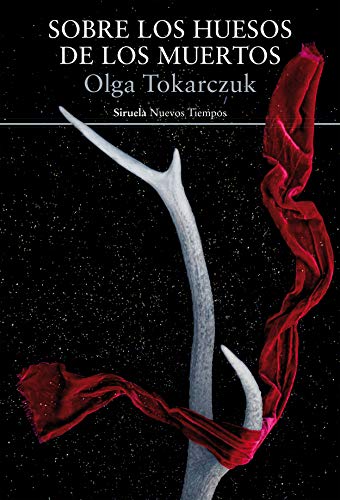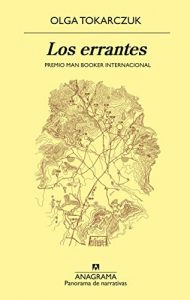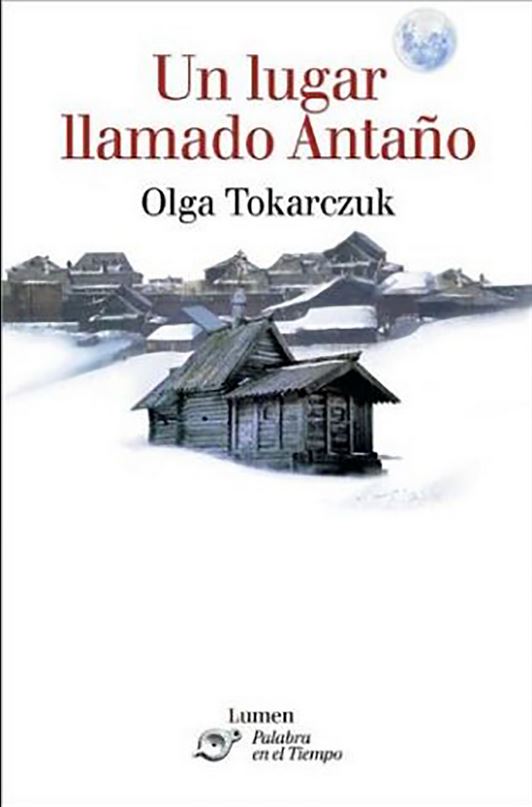Such are the times we live in. Because, despite being Olga Tokarczuk with the Nobel Prize in Literature 2018, this award having been "suspended" in its calendar year for reasons that are not relevant, its impact was overshadowed by the current year's winner: Peter Handke.
And it is that the new continues to sell better. Like the label on a shampoo formula. Surely this singularity means that the Polish author walks on tiptoe with her worldwide literary recognition in these days close to the publication of the decision.
And yet History will end up elevating her as the only postponed Nobel Prize in Literature. Beyond suspensions due to wars or the 1935 case in which he was deserted, Olga Tokarczuk is, with Dylan's permission, the most atypical nobel prize for literature.
With regard to the work of this Polish writer, her virtue is the brilliant alternation between poetry and prose, without a very defined fondness for either of the two areas and with dramaturgical incursions of great value.
Focusing on the novel plot, we go there with our selection.
Olga Tokarczuk's Top 3 Recommended Novels
On the bones of the dead
When a large pen, with its marked humanistic side, tackles a noir novel, that darkness ends up spreading to many other aspects beyond the crime of the day.
Serial murders grip the small society on the scale of Kotlina, as far removed from the world between its mountains and deep forests as it is ultimately representative of humanity facing fear and clinging tooth and nail to its subjective notion of the world. Because the victims, unscrupulous poachers, for many have found their most poetic justice. In the midst of the particular pandemonium awakened among the ancient silence of the forests, we find Janina. In her new dedication as a teacher, the girl is delighted with what this means, a reunion with nature. And yet, it is not that she communes with those who rejoice at the death of the hunters.
In the end, she herself is compelled to search for the truth of everything, the motives for the crimes. Almost always, despite virtue being in the middle, when they paint coarse, everyone wants us to position ourselves at one extreme or the other. Janina will go her own equidistant path, for better or for worse, perhaps looking for enemies on both sides.
The Wanderers
Or as Bunbury sings “because wherever I go, they call me the foreigner. Wherever I am, the stranger I feel ». No better idea to approach the journey as learning from the blank page.
Wanderer or foreigner, Olga distills in this novel everything necessary about travel as an initiation point to learn and soak up new worlds. All the characters in this fragmented novel, in these stories, made into a novel in essence, give an account of her life during the trip. Because in every path there is uncertainty. In movement we are more than ever exposed to the circumstances that may arise and to that good fortune towards whatever destination we undertake. This is how this story of passers-by faced with a thousand and one adventures between the tragic, the unexpected, the magical or the transcendental is stitched together.
Because only by leaving our place we find our destiny. From a peaceful vacation to homecoming. No matter the way out or back, the crux is in the interval, in that train to which we deliver the most comforting of our dreams or the fast plane from which we see how little everything is. Beyond what Dr. Blau, Philip Verheyen, Annushka or any other of the shared protagonists have to teach us, the essential is the ever-moving stage.
The trip is everything and made wandering characters is when we can ask ourselves the questions that we do not want to face when we are immersed in a world stopped waiting for us, eager for us to undertake a new adventure.
A place called yesteryear
The past is a scent. That of the wood smoke that is escapes from the winter chimneys; that perfume that atomizes in the air the memory of a naked body; those spices suspended in a current that places you in the old streets of an ancient city ...
Nothing better than a scent of yesterday to feel the passage of time in its deepest meaning. Breathing through the years thanks to this book is equivalent to a visit to the history of old Europe. It used to be Poland but it could be in Germany or Spain. All of Europe was engulfed in the scent of the still warm blood. Smell of madness and revenge.
Aromas that Olga is in charge of presenting us to contrast them with the soft but firm olfactory warmth of hope. Between the two antagonistic sensations, a place called Antaño for whose lives it is worth losing yourself as an impromptu tourist.



